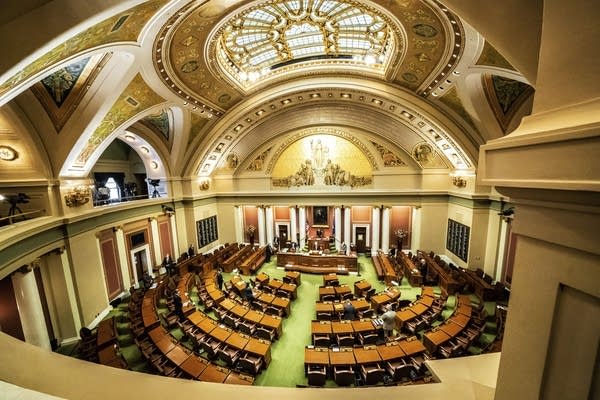MN Senate GOP tries again to end COVID-19 emergency

Democratic House Speaker Melissa Hortman, of Brooklyn Park, calls for members to stand in silence and bow their heads in honor of George Floyd on on June 12, as the Minnesota State Legislature met in a special session.
Glen Stubbe | Star Tribune via AP file
Go Deeper.
Create an account or log in to save stories.
Like this?
Thanks for liking this story! We have added it to a list of your favorite stories.


